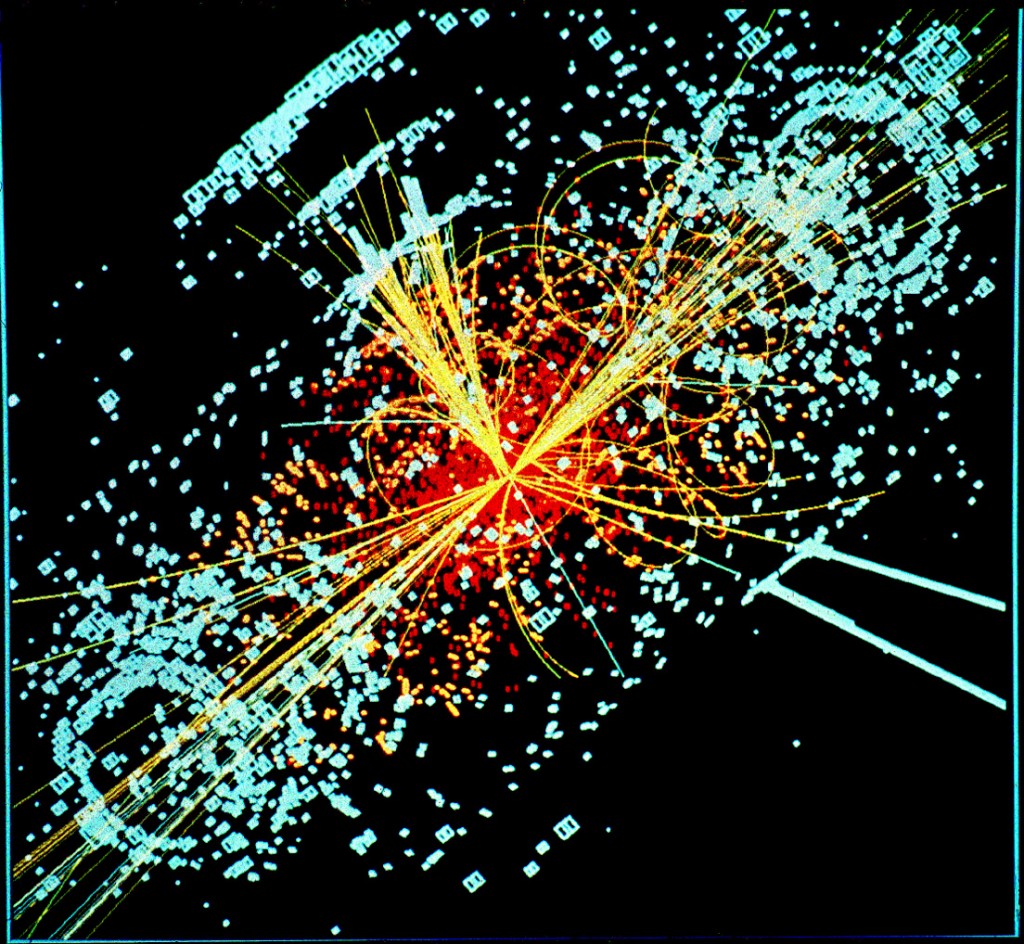BEIJING, July 5 (Xinhua) — Chinese scientists have made “important” contributions in hunting the Higgs boson, or “God particle,” in cooperation with the European Center for Nuclear Research, a Chinese research body said on Thursday.

A simulated event at the Large Hadron Collider. This simulation depicts the decay of a Higgs particle following a collision of two protons in the CMS experiment.
| Scientists at the center on Wednesday celebrated the discovery of a new subatomic particle that appears to be consistent with the Higgs boson, a hypothetical elementary particle that is believed to hold answers regarding the formation of the universe following the Big Bang 13.7 billion years ago.
Experts said that although the discovery marks a milestone in physics, another year of research will be required to confirm the results. |
The new particle shares many of the same qualities as the one predicted by 82-year-old British theoretical physicist Peter Higgs, who was invited to attend Wednesday’s celebration at the European center.
The hunt for the Higgs boson has been a focus of particle physics research for decades. Scientists believe the particle has always existed and that discovering it is merely a matter of time.
More than 30 nations, including the United States, Japan, France, Switzerland, Italy and China, have participated in the ATLAS and CMS experiments using the European center’s Large Hadron Collider (LHC), which is located outside Geneva along the Swiss-French border.
| Sources from the Institute of High Energy Physics of the Chinese Academy of Sciences (CAS) said China has provided about one-hundredth of the funds and manpower used to run the experiments. Chinese scientists have played an important role in building particle detectors and creating methods for physical analysis, the CAS institute said. A method of enhancing the sensitivity of the detectors, created by a Chinese research team, was adopted for the experiments, said Chen Guoming, a CAS researcher who has participated in the experiments. |
“It will take a long time to confirm the discovery,” Chen said, adding that a new electron-positron collider may be required to conduct further studies.